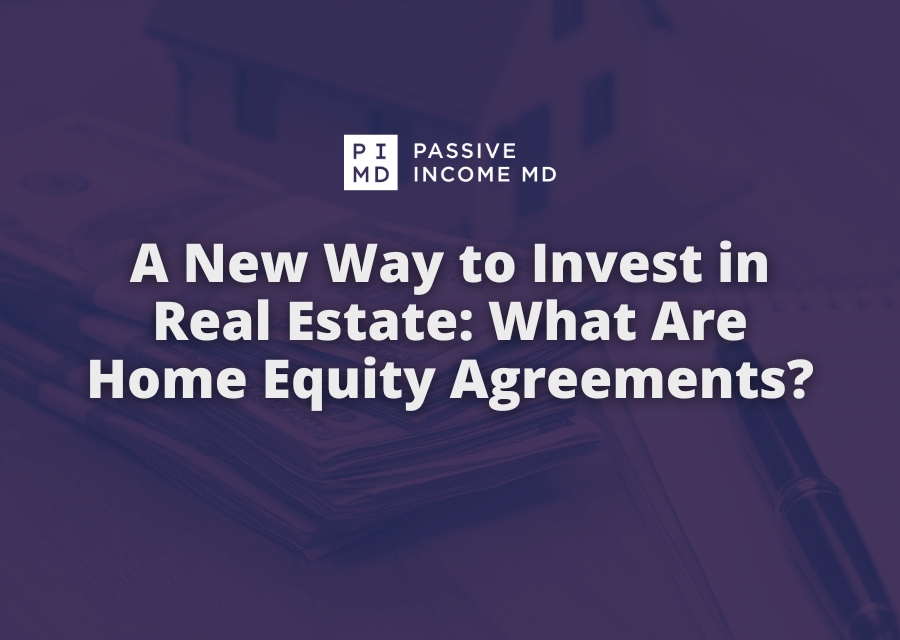We all know the usual ways to invest in real estate: buying rental properties, investing in syndications, lending capital for deals, or even flipping homes.
But what if I told you there’s another strategy that doesn’t involve tenants, toilets, or even owning property in the traditional sense?It’s called a Home Equity Agreement (HEA)—and it’s one of the most interesting real estate investment models I’ve come across in a while.
Disclaimer: This article is for informational and educational purposes only and does not constitute financial, legal, or investment advice. Any investment involves risk, and you should consult your financial advisor, attorney, or CPA before making any investment decisions. Past performance is not indicative of future results. The author and associated entities disclaim any liability for loss incurred as a result of the use of this material or its content.
What Is a Home Equity Agreement?
A Home Equity Agreement (HEA) is a financial contract that allows homeowners to tap into their home equity without taking on more debt. And on the flip side, it creates a way for investors to participate in the future appreciation of real estate assets—without being landlords or lenders.
Here’s how it works:
- A homeowner receives a lump sum of cash upfront
- In return, they agree to share a percentage of the future value of their home
- There are no monthly payments or interest
- The agreement typically lasts for 10 years or until the home is sold or refinanced
In other words, investors are buying a piece of the home’s future upside. If the home appreciates, so does your return.
Why This Is So Innovative
We’re talking about a new investment class here: equity-based exposure to residential real estate without owning the whole property or managing it. As an investor, you’re not responsible for maintenance, repairs, or collecting rent. You simply ride the wave of appreciation.
It also solves a major problem for homeowners: access to capital.
Many people are house-rich but cash-poor. They’ve built massive equity over the years, but don’t want to refinance (especially with today’s interest rates) or can’t qualify for a HELOC. HEAs offer a non-debt solution to tap into that value—for things like medical expenses, renovations, college tuition, or debt consolidation.
Why It Caught My Attention
As physicians, we’re constantly looking for time-leveraged ways to invest—especially strategies that don’t require us to manage more jobs on top of our already busy schedules.
This kind of investment checks a lot of boxes:
✅ Passive
✅ Scalable
✅ Real estate-backed
✅ Doesn’t rely on rent collection
✅ Potential for long-term appreciation
It also offers a way to diversify beyond traditional rentals or syndications, especially if you’re already heavily invested in one segment of the market.
What the Experts Say
I recently sat down with Jesse Stein, the Chief Investment Officer at Homeshares, a company that builds investment products around home equity agreements.
He put it this way:
“There’s over $30 trillion in residential home equity in the U.S., and much of it is illiquid. Home Equity Agreements allow investors to participate in this massive market while offering homeowners access to their wealth—without taking on more debt. It’s simple, but not something most people know they can invest in.” – Jesse Stein, CIO at Homeshares
That statistic alone blew my mind. $30 trillion in equity that’s largely locked up. And now there’s a way to invest in it?
Who Is This For?
If you’re someone who…
- Wants exposure to real estate but doesn’t want to be a landlord
- Has already invested in syndications and is looking for a new angle
- Values long-term capital appreciation over immediate cash flow
- Wants to invest passively in residential markets across the U.S.
…this might be worth looking into.
This isn’t the right strategy for someone who needs quick liquidity or monthly distributions. Most HEA investments are illiquid for 5–10 years, with returns realized upon sale or refinance of the homes.
How to Get Started
There are a few platforms and funds out there that allow accredited investors to gain access to these types of deals. One such platform is Homeshares, which offers diversified exposure to a pool of HEAs across different markets through their U.S. Home Equity Fund.
They’re not the only option—but they’re one of the few currently specializing in this space, and they’ve been involved with structuring these agreements for years.

Subscribe to receive the 7 Steps you can follow to achieve Financial Freedom
If financial freedom is your goal, there’s no better time to get started than right now.
Unlock actionable steps that you can take every day to fine-tune your goals, discover your interests, and avoid costly mistakes on your financial freedom journey.
Final Thoughts: You Don’t Need to Quit. You Just Need Options.
Real estate is an ever-evolving field and some of the most interesting opportunities exist in corners that most investors haven’t even heard of yet. Home Equity Agreements are a perfect example of this.
They represent a new, innovative way to generate returns from residential housing without ownership or management and they might just be one of the next big waves in passive real estate investing.
Curious About Other Creative Ways to Invest in Real Estate?
🎧 Listen to my full conversation with Jesse Stein on PIMD Podcast #280
📘 Explore Passive Real Estate Academy
📩 Join the Passive Income MD newsletter for weekly strategies
This post is for educational purposes only and not to be considered financial advice. As always, do your own due diligence before making any investment decisions.
Were these helpful in any way? Make sure to sign up for the newsletter and join the Passive Income Docs Facebook Group for more physician-tailored content.
Peter Kim, MD is the founder of Passive Income MD, the creator of Passive Real Estate Academy, and offers weekly education through his Monday podcast, the Passive Income MD Podcast. Join our community at the Passive Income Doc Facebook Group.
Further Reading

